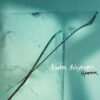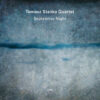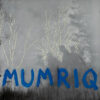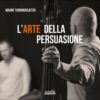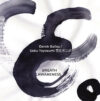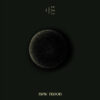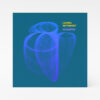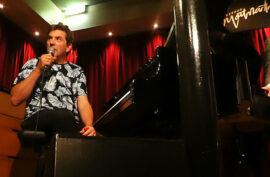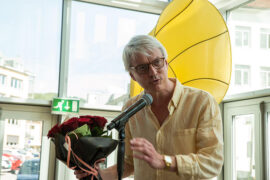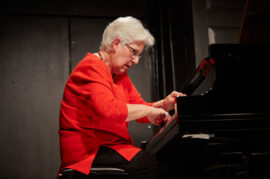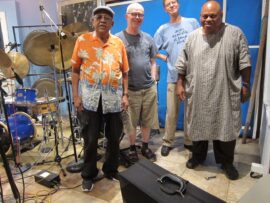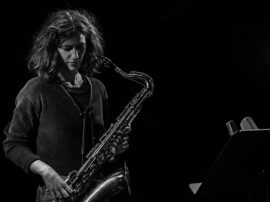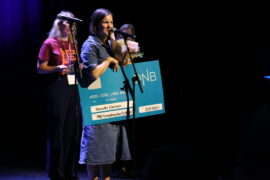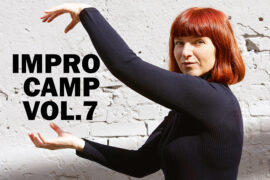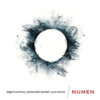
The Italian classically-trained pianist Angelo Comisso is known for his long-term collaboration with German trumpeter Markus Stockhausen, including in Stockhausen’s Karta quartet (with Norwegian double mass master Arild Andersen) and the Quadrivium quartet (that recently released «Far Into The Stars», Okeh, 2017). «Numen» (sacred in Latin) presents Comisso’s new jazz trio with fellow Italian double bass player Alessandro Turchet and drummer Luca Colussi, two musicians who fit perfectly Comisso’s sensitive, yet passionate and playful vision.
Comisso describes «Numen» as a collection of melodic ideas «submitting themselves to the natural laws of beauty». These melodies are rooted in jazz legacy, but firmly anchored in the European dimension of lyrical and introspective sonic imagery and phrasing, spiced with a light Mediterranean touch. This trio stresses an organic and harmonious sense of flow and balance in its interplay. The sonic breadth of this trio embraces Italian experimental composer Luciano Berio as well as Argentinian nuevo tango pioneer Astor Piazzolla.
Comisso’s compositions rely on strong melodic themes, but are open to the trio’s abstraction, as an intimate collective as well as individuals. Comisso is clearly the leader, following his own kind of spiritual – «Numen» – command, as «Numen» is sequenced as a suite that aims for a deep emotional catharsis. But he is a generous leader and leaves enough room for Turchet and Colussi to improvise and challenge his ideas and offer their own playful, driving gestures, as the three musicians do on «Alianti», «Whisper» or the more open «Erbolat». Piazzolla’s romantic «Chiquilin de Baquin» is introduced by Comisso’s melancholic interlude «Promenade #3». In a similar manner, «Promenade #4» introduces Berio’s contemplative and nostalgic «Wasseklavier». This intimate and nostalgic mood intensifies with Comisso’s «Wood Indigo», a moving and most beautiful homage to Duke Ellington’s «Mood Indigo», and more so with the hymn-like, solo piano of Comisso on the final piece «Torii».
Eyal Hareuveni
Angelo Comisso (p), Alessandro Turchet (b), Luca Colussi (dr)

